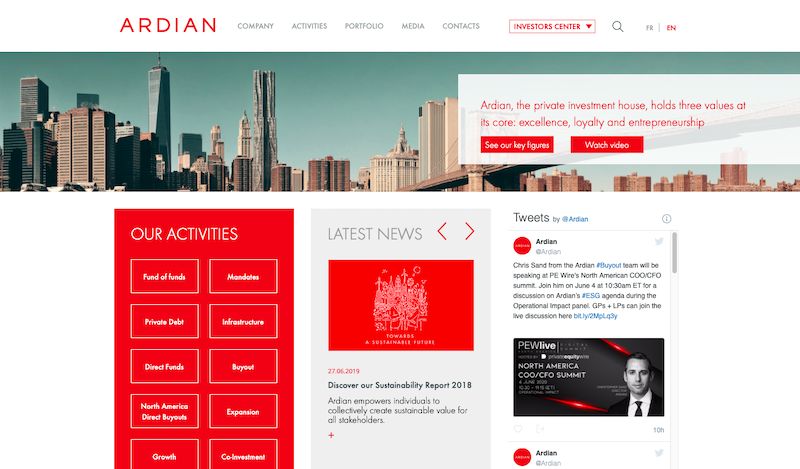Monetary Authority of Singapore Proposed Financial Advisory Recruitment Measures, Targeting Sign-on Incentives & Mass Movements
The Monetary Authority of Singapore (MAS) has proposed 4 measures to address the risks associated with large scale movement of financial advisory (FA) representatives from one FA firm to another. The 4 measures aim to promote more responsible recruitment practices in the FA industry. The Central Bank has called for a public consultation, which will end on 9th April 2018.
” Singapore Central Bank Proposes Responsible Recruitment Practices “
Mass recruitment of representatives by FA firms from competitors recently was accompanied by sizeable sign-on incentives. Much of the incentives are paid up-front and tied to sales targets. These increase the risk of FA representatives engaging in aggressive sales tactics meet the sales targets and retain their sign-on incentives.
The offer of large sign-on incentives may also drive up costs in the industry. Singapore’s Central Bank (MAS) has made it clear that financial incentives to recruit representatives cannot be charged to the insurance funds as an expense.
The public consultation will end on 9 April 2018. More details can be found on the MAS website through this link.
The 4 Proposed Measures
(a) and (b) applicable only if sign-on incentives are pegged to sales targets
a) First Year Sales Target (Tied to Incentives) Cannot be Higher than the Average Annual Sales in the Last 3 Years
The first year sales target tied to sign-on incentives should be no higher than the representative’s average annual sales in the preceding 3 years. Sales targets for subsequent years should be set at a reasonable level based on the representatives’ past performance, and would be subject to supervisory review by MAS. This measure mitigates the risk of representatives engaging in aggressive sales tactics to meet inflated sales targets.
b) Sign-on Incentives Spread Over at Least 6 Years
Sign-on incentives should be spread over a minimum period of 6 years. The first year payment should be capped at 50% of the representative’s average annual remuneration in the preceding 3 years. The remaining sign-on incentives are to be spread evenly over the next 5 or more years. This measure fosters better after-sales service to customers as the payout of incentives may be withheld if a representative is subsequently found to have engaged in improper sales conduct.
(c) and (d) applicable only if 30 or more representatives move with 60 days rolling period
c) Sign-on Incentives to be Clawed Back if Policies Persistency Ratio Drops Below 75% to 85%
FA firms will be required to claw back the representative’s sign-on incentives if the percentage of insurance policies serviced by the representative at his previous FA firm and which remain in force, falls below a certain threshold2 two years after the representative’s departure.3 This measure deters representatives from encouraging customers to surrender existing insurance policies and to buy new ones from the new FA firms, without due consideration of whether the switch is suitable.
d) Enhanced Sales Monitoring by 3rd Party (Call Verification) for at least 2 Years
FA firms will be required to undertake enhanced monitoring of their newly hired representatives’ sales transactions for a minimum period of 2 years. This includes appointing an independent external party to conduct customer call-backs to verify that the sales and advisory process has been properly conducted.
1 Measures (a) and (b) will apply whenever a representative is offered sign-on incentives pegged to sales targets, whereas (c) and (d) will apply only to the mass movement of 30 or more representatives from one FA firm to another within a 60-day rolling period. 2 The threshold is set within the range of 75% to 85%. 3 This measure relates to the persistency ratio, which refers to the percentage of regular premium life and accident & health policies that remain in force without lapsing or being replaced by another policy.
Source: Official Press Release
About Monetary Authority of Singapore

Monetary Authority of Singapore (MAS) is Singapore’s central bank, which was formed back on 1 January 1971. It promotes sustained, non-inflationary economic growth through appropriate monetary policy formulation and close macroeconomic surveillance of emerging trends and potential vulnerabilities. MAS manages Singapore’s exchange rate, foreign reserves and liquidity in the banking sector. It is also an integrated supervisor overseeing all financial institutions in Singapore — banks, insurers, capital market intermediaries, financial advisors, and the stock exchange.
- Origin : Singapore
- Assets : USD 385.12 billion
- Revenue : USD 1.89 billion
Official Website: www.mas.gov.sg
News & Media: Press Release
Updated on 8th August 2016
Sign Up / Register
Caproasia Users
- Manage $20 million to $3 billion of assets
- Invest $3 million to $300 million
- Advise institutions, billionaires, UHNWs & HNWs
Caproasia Platforms | 11,000 Investors & Advisors
- Caproasia.com
- Caproasia Access
- Caproasia Events
- The Financial Centre | Find Services
- Membership
- Family Office Circle
- Professional Investor Circle
- Investor Relations Network
Monthly Roundtable & Networking
Family Office Programs
The 2025 Investment Day
- March - Hong Kong
- March - Singapore
- July - Hong Kong
- July - Singapore
- Sept- Hong Kong
- Sept - Singapore
- Oct- Hong Kong
- Nov - Singapore
- Visit: The Investment Day | Register: Click here
Caproasia Summits
- The Institutional Investor Summit
- The Investment / Alternatives Summit
- The Private Wealth Summit
- The Family Office Summit
- The CEO & Entrepreneur Summit
- The Capital Markets Summit
- The ESG / Sustainable Investment Summit








































